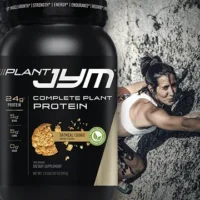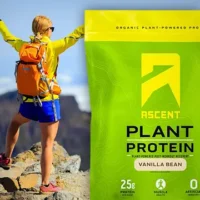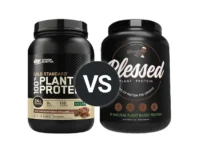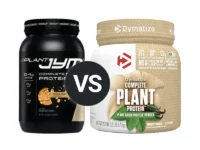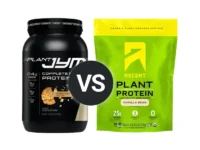Knowledge BaseYou're Questions Answered
BACK
What is plant protein powder?
Plant protein powder is a dietary supplement made from various plant sources. Unlike animal-based proteins such as whey or casein, plant protein powders derive their protein content from grains, legumes, seeds, and other plant materials. These powders are popular among vegetarians, vegans, and those with allergies or sensitivities to dairy or egg proteins.
Common Sources of Plant Protein Powder
- Pea Protein: Made from the yellow split pea, a high-fiber legume that offers a substantial amount of protein per serving, pea protein is known for being hypoallergenic and easy to digest 1.
- Rice Protein: Extracted from brown rice, this protein is often praised for its light texture and neutrality in flavor, making it a versatile choice for smoothies and baking 2.
- Hemp Protein: Derived from the seeds of the hemp plant, hemp protein is not only rich in protein but also includes omega-3 fatty acids and essential amino acids 3.
- Soy Protein: Isolated from soybeans, soy protein is a complete protein containing all nine essential amino acids, making it comparable to animal proteins in terms of amino acid profile 4.
- Other Sources: Other plant proteins include quinoa, chia seeds, and flaxseeds, which are also used to enrich protein content and add dietary fiber and omega-3 fatty acids to the mix.
Benefits of Plant Protein Powder
- Digestibility: Many plant proteins are easier to digest and are often free from allergens found in dairy or egg-based proteins.
- Nutrient-Rich: They typically contain more fiber and essential nutrients compared to animal-based proteins.
- Environmentally Friendly: Plant-based proteins are generally considered more sustainable and environmentally friendly than animal-based proteins due to lower greenhouse gas emissions and water usage in production 5.
- Dietary Inclusivity: Suitable for vegans, vegetarians, and those with certain dietary restrictions such as lactose intolerance or a preference for non-GMO and organic products.
Choosing and Using Plant Protein Powder
- Check for Additives: Look for plant protein powders with minimal additives, sweeteners, or artificial flavors to keep your diet clean and healthy.
- Protein Blends: Some plant protein powders combine different sources to offer a complete amino acid profile that can sometimes lack in a single source powder.
- Taste and Mixability: Plant proteins can vary significantly in taste and how well they mix with liquids. Sampling small quantities before purchasing in bulk can help find a product that meets your taste and texture preferences.
Plant protein powders offer a valuable alternative to traditional animal-derived proteins, providing diverse nutritional benefits and catering to a wide range of dietary needs and preferences.
Was this answer helpful? Let us know!
Like
References:
- Stone, A. K., Karalash, A., Tyler, R. T., Warkentin, T. D., & Nickerson, M. T. (2015). Functional attributes of pea protein isolates prepared using different extraction methods and cultivars. Food Research International, 76, 31-38.
- James, A. P., Elmslie, J. L., & Wijeyesekera, A. (2020). Rice protein isolate: Nutritional value and health benefits. Food & Function, 11(10), 8898-8906.
- Callaway, J. C. (2004). Hempseed as a nutritional resource: An overview. Euphytica, 140(1-2), 65-72.
- Messina, M., & Messina, V. (2010). The role of soy in vegetarian diets. Nutrition, 26(10), 954-955.
- Poore, J., & Nemecek, T. (2018). Reducing food’s environmental impacts through producers and consumers. Science, 360(6392), 987-992.
Add to this Answer
Related Questions
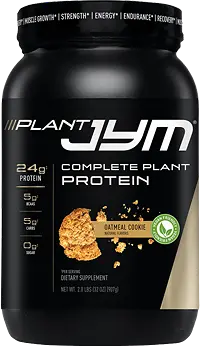
Disclosure
Your Answer
Do you have a suggestion to improve the answer? Please detail your suggestions and provide any references to information that may support your answer if available.
The content on this site has not been written, reviewed or endorsed by a medical professional. We assume no liability for the misuse of supplements and recommend you review the label of any product, as well as consulting with your health care professional.
We are a participant in the Amazon Services LLC Associates Program, an affiliate advertising program designed to provide a means for us to earn fees by linking to Amazon.com and affiliated sites.
We are a participant in the Amazon Services LLC Associates Program, an affiliate advertising program designed to provide a means for us to earn fees by linking to Amazon.com and affiliated sites.
© 2026 ProteinPowder.com

